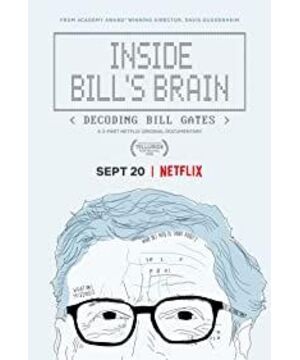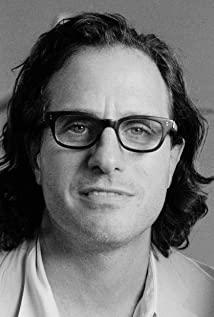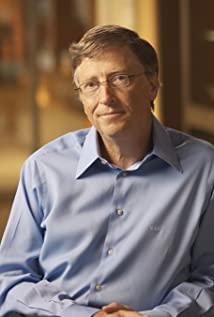Finished watching this documentary that has been recommended from several sources.
The cross narrative mainly talks about the three public welfare projects he led - cleaning toilets, eradicating polio, nuclear power generation, three waves of important people in life - mother, friends, wife, and some major life events - Growing up, several projects in my teenage years, Microsoft development.
In the past, of course, Bill Gates was a symbol, the richest man, and later he was known to be a technical genius. After watching the documentary, I feel that this person's abilities are too comprehensive, genius, problem solver, erudite and in-depth brain, leader.
Bill Gates has a richer image here because at the end of 2019, I saw the media reported on the Gates Foundation's electronic pill box project. "The medicine box is equipped with a special device to remind the patient to take medicine and follow-up consultation. When the patient misses taking the medicine or fails to return to the consultation, the medicine box will automatically remind the patient to take the medicine in time or return to the consultation." I don't understand the technology. According to my guess, this medicine box is technically It's not difficult, but my major made me realize that this job is very meaningful. China is a big country with tuberculosis, and many patients need to take medicines, and compliance with taking medicines and follow-up visits is often poor. Missing and stopping taking medicines will not only lead to delayed recovery of individual patients, but also increase the emergence of multidrug-resistant tuberculosis in the population.
Many rich people will support medical careers and care about human development. They often choose professional people and then give money. This is of course very good. My former roommate once worked as a small summer in a private research institute funded by two rich people in the United States. It is said that the research institute mainly supports their own diseases. Some people will guide them personally, but because of laypeople, it is sometimes difficult to efficiently devote resources to the most critical issues. Of course, their money is the master.
The uniqueness of Bill Gates is that he is trying to solve some problems with the thinking of engineers. In the past, we thought that these problems were mainly promoted by the government, NGO, WHO or other similar organizations. Few people did it mainly from the perspective of technological innovation. try. To sum it up, maybe the Silicon Valley way? Trying to change the world with technology. He himself mentioned in the documentary that this is because he is good at this path. He feels like a hammer. When he sees a nail (problem) in the world, he wants to hammer it. And he is not only technical, he is good at planning, risk control, budget planning, profit forecasting. He not only chooses professional people, but also in-depth study of related fields, giving opinions and directions. At least from the pillbox case, I think he's pretty clear about what he's doing.
There are a few small clips in the documentary that impressed me deeply:
1 The woods near his house are wonderful.
2 His childhood buddy (another genius, of course) Kent died of mountaineering, and he continued to do what they discussed on his own. What kind of friend can let a person with such rich experience still show a regretful expression in old age.
3 His wife Melinda is as outstanding as his mates. So there's more to marriage than partnership, to raising children together and going through life together? too difficult. . . After all, his partner Paul, who founded Microsoft together, parted ways with him later because of the differences in their investment in their careers.
4 Microsoft's antitrust lawsuit, when he mentioned it, he said that he didn't think it would be like that at the time, the reason was "Naive". It's a rare moment of sadness in the film.
5 It ends with a quote from his mother. Each one of us has to start out with developing his or her own definition of success. And when we have these specific expectations of ourselves, we're more likely to live up to them. Ultimately, it's not what you get or even what you give. It's what you become. I don't have the brains of Bill Gates at all, and for the first half of my life, I'm just an ordinary person. But you can still think about how to be happier after earning two buckets of rice.
View more about Inside Bill's Brain: Decoding Bill Gates reviews









